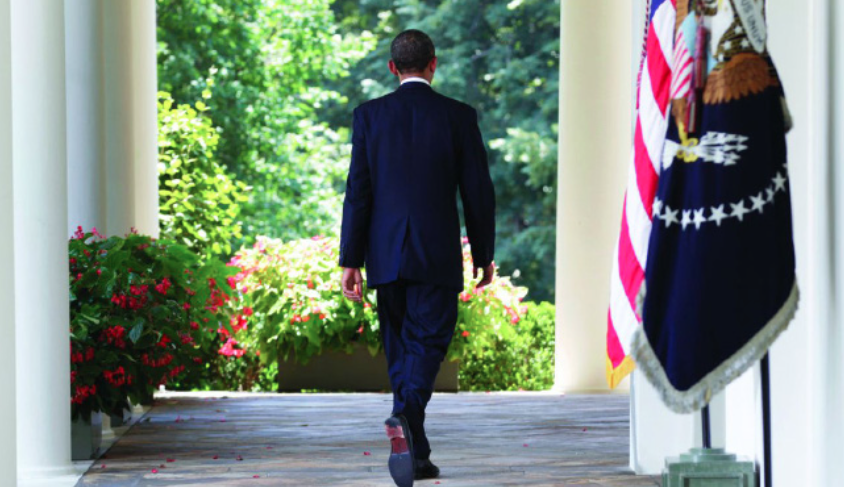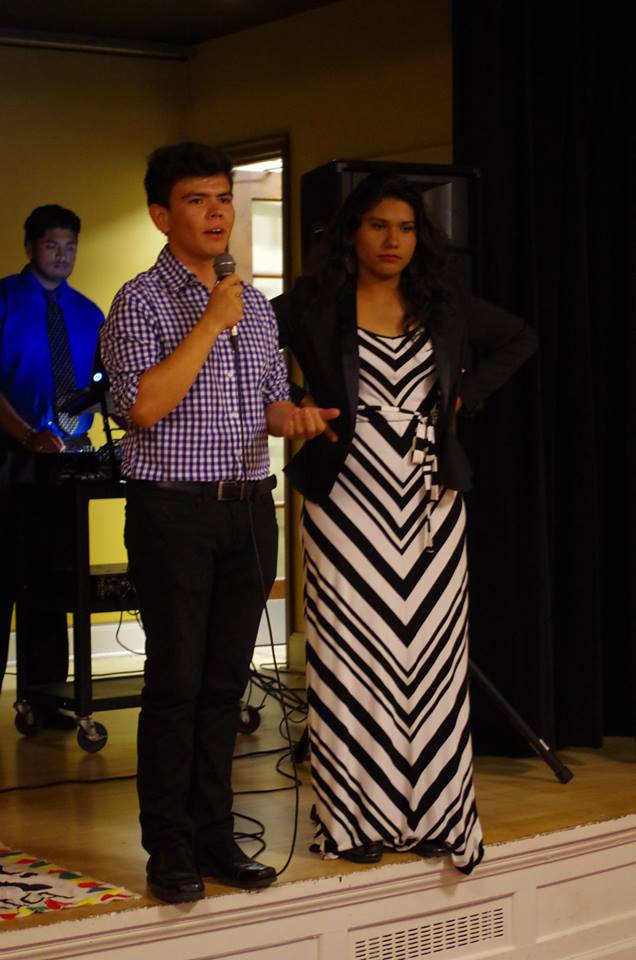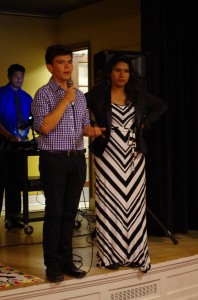By Shamayeta Rahman, Transcript Reporter
ELECTION IS OVER: NOW WHAT?
On Nov.8, Donald J. Trump won the election with 290 electoral votes. A lot has happened in the one month since the controversial election. Here’s the breakdown of the few major issues:
Protests spread in large cities countrywide
Mass protests spread across cities like Portland, Los Angeles, San Francisco, New York City, Chicago and more, drawing in thousands. Even in states that voted Republican saw protests in metropolitans like Dallas, Kansas City, Omaha, Philadelphia, Atlanta, Tampa and more. Most protesters gathered in front of Trump Towers or government offices.
People were initially peacefully protesting under the rallying cry “Not my president!” When things did get violent in some of the cities, tear gas, pepper sprays and flash-bang devices were used to subdue and disperse the crowd.
There were about a hundred arrests nationwide on the first day, with 65 in New York City.
In Portland, Oregon, when the protests turned violent on the third day, the local police categorized it as a riot and arrested 26 people for vandalism. In Oakland, California, three police officers were injured. Vandalism was widespread in some cities, and many burned effigies of Trump and the American flag in protest.
Initially, Trump condemned such behavior on Twitter by saying, “Professional protesters, incited by the media, are protesting. Very unfair!”
When reminded of the First Amendment and the right to peacefully assemble, he changed his mind two days later and posted, “Love the fact that the small groups of protesters last night have passion for our great country. We will all come together and be proud!”
Petitions
A petition on change.org requesting the electors to vote for Hillary Clinton has almost 4.7 million signatures as of now. Clinton won the popular vote by more than 2 million votes.
Petitions on change.org usually require 100,000 signatures within 30 days to get a response from the officials. Daniel Brezenoff of North Carolina started the petition the day after the election, and itwas addressed to the electoral college.
The electoral college, with its 538 electorates, will be voting on Dec. 19. In 24 states, electors are bound legally to vote for the chosen party in their area and are fined if they do not follow. However, in 14 states (with close to 149 electors) there are no rules against it. The petition cites Alexander Hamilton and how he spoke of the electoral college as a balancing scale that would help to put someone who is not only popular but also fit to serve as president.
Part of the petition letter said:
“Casting your ballot for [Clinton] preserves majority rule – the “sense of the people” – and prevents the most unqualified candidate in history from taking office. Never in our Republic’s 240 years has our president had no previous experience in an office of public trust, be it elected or appointed, civilian or military. Never has a president admitted to sexual assaults. Never has a president encouraged violence at campaign events.”
While the Constitution does not say anything specifically on this point, which technically makes it legal, there have rarely been faithless electors, especially enough to turn the election.
Three electors have already come out saying that they will not be voting for Trump and that they would prefer a more experienced Republican candidate instead.
If neither of the candidates reach the 270 vote mark on Dec. 19, the House of Representatives will decide who the president will be. Considering the current House is Republican, this should play in Trump’s favor.
Recounts in Wisconsin, Pennsylvania and Michigan
Green Party candidate Jill Stein, who won 1 percent of the national vote, started a fundraiser trying to raise $7 million to pay the legal costs and recount fees for the states of Wisconsin, Pennsylvania and Michigan. They have raised $6.1 million of their goal.
The costs are outlined as $1.1 million for Wisconsin, $0.5 million for Pennsylvania and $0.6 million for Michigan and about $2-3 million in attorney fees. As of now, they met their funding goals for Wisconsin and Pennsylvania and the petition is already in for the two states.
Clinton is 70,000 votes behind in Pennsylvania, about 20,000 votes behind in Wisconsin and 11,000 votes behind in Michigan. The recount initiative was taken up by the Green Party when rumors of hacking and voter fraud began.
Meeting with President Obama
Trump met with President Barack Obama at the White House Nov. 10. They had an hour-long meeting that Obama described as an “excellent and wide-ranging” conversation.
Despite the impolite things they’ve said about each other before the election, both men seemed pleased with the outcome of the meeting.
“My number one priority in the coming two months is to try to facilitate a transition that ensures our president-elect is successful,” Obama said.
Trump said, “I have great respect. The meeting lasted for almost an hour and a half, and it could’ve, as far as I’m concerned, it could’ve gone on for a lot longer.”
Melania Trump also met with First Lady Michelle Obama that day. Vice President-elect Mike Pence and Trump also met House Speaker Paul Ryan the same day.
Policies
There have been a lot of backtracking in terms of what Trump had promised before the election.
One of the main issues he intended to tackle on the first day of office was repealing ObamaCare, but he has now said that considering the expenses and feasibility of it, a reform might be much better suited.
On immigration and the famed “wall” that was promised to be paid by Mexico, Trump has only spoken about how it might be a “fence” in some parts to reduce the cost, but didn’t address whether the Mexican government will be funding it or not.
He has still been very outspoken about the deportation of millions of illegal immigrants, but is citing smaller numbers now.
Additionally, he has also taken down the anti-abortion messages from his website, and in his 60 Minutes interview said that gay marriages will remain legal as it is now the law of the land. These were both things that he had been very vocal about changing before the election.
As for the North Atlantic Treaty Organization (NATO), despite Trump’s threats of leaving Europe to be, Obama has assured Europeans leaders that Trump will not be moving away from the commitment to NATO, saying he has spoken to the president-elect about it.
He has also said he will not be proceeding with the trials against Clinton and her email server case.
Cabinet
Hailed as a “knife fight,” Trump picking his cabinet has been a point of controversy throughout the last month. But the trends in his choices indicate he is rewarding people who have been loyal to him from the beginning.
His current choices are:
Alabama Sen. Jeff Sessions has been nominated for attorney general. Sessions, who has been an outspoken Trump supporter from the beginning, previously failed to become a federal judge when he was deemed too controversial for the position.
Rudy Giuliani and Mitt Romney are currently the top runners for the position of secretary of state.
Giuliani’s nomination would be a lot more controversial due to his links with an Iranian group deemed to be terrorists by the Department of State. Romney had previously voiced his disdain for Trump, but Trump is still considering him for the role.
Mike Pompeo has been selected as the CIA director. Retired Lt. Gen. Mike Flynn has been named as the national security adviser.
Republican National Committee Chairman Reince Priebus might possibly be given the role of chief of staff and campaign executive.
Steve Bannon, the editor of Breitbart, is getting the role of senior adviser or chief strategist. Bannon’s nomination has been riddled with a lot of controversy especially due to his anti-Semitic and occasionally racist comments. Newt Gingrich is also one of the contenders for a cabinet position.
Betsy DeVos has been nominated as Secretary of Education; she has been a top campaign donor and a school choice activist. Gov. Nikki Haley of South Carolina has been named the ambassador to the United Nations and Ben Carson has been named the secretary of housing and urban development.





